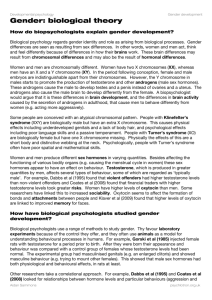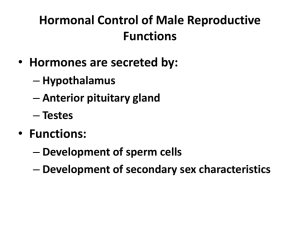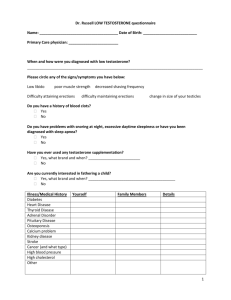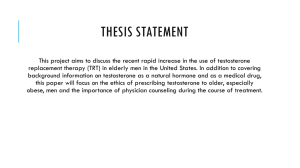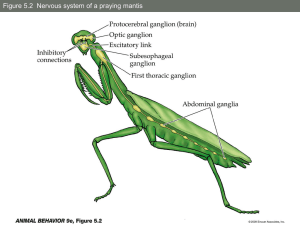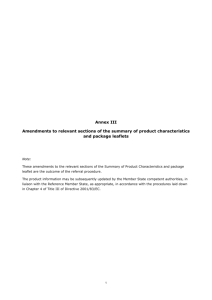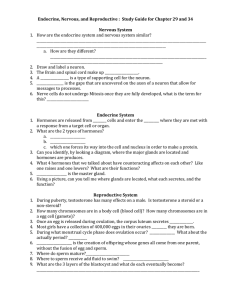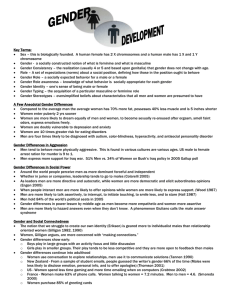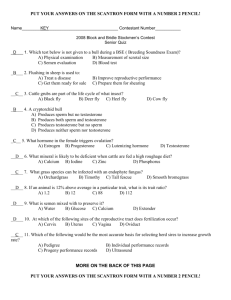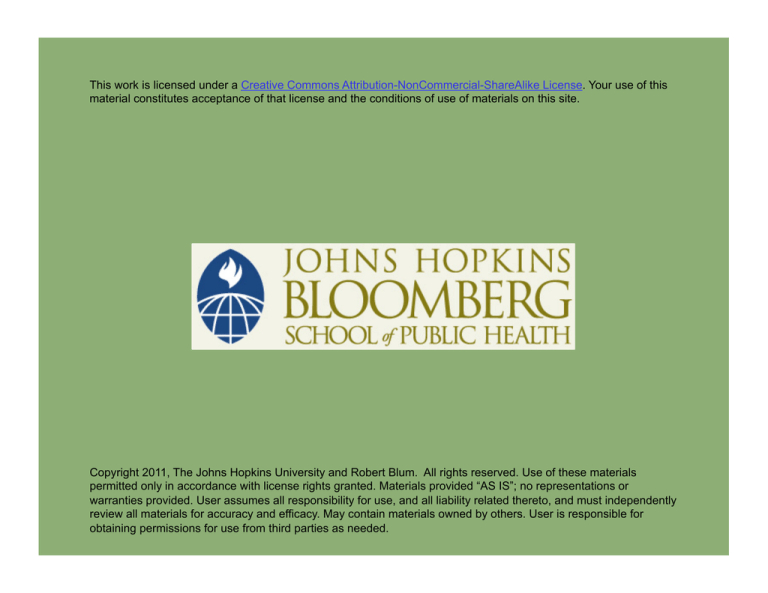
This work is licensed under a Creative Commons Attribution-NonCommercial-ShareAlike License. Your use of this
material constitutes acceptance of that license and the conditions of use of materials on this site.
Copyright 2011, The Johns Hopkins University and Robert Blum. All rights reserved. Use of these materials
permitted only in accordance with license rights granted. Materials provided “AS IS”; no representations or
warranties provided. User assumes all responsibility for use, and all liability related thereto, and must independently
review all materials for accuracy and efficacy. May contain materials owned by others. User is responsible for
obtaining permissions for use from third parties as needed.
Section C
Puberty and Behavior
Puberty and Behavior
What are the relationships between problem behavior, hormonal
changes, and puberty?
3
Hormones
Hormones influence behaviors more than does age or pubertal stage
4
Testosterone: A Direct Effect
There is no association between testosterone and conduct disorders
in adolescent males
Boys who had disruptive behavior had lower testosterone
5
Problem Behaviors, Stress, and Hormones
Problem
Behavior/
Stress
6
Problem Behaviors, Stress, and Hormones
Problem
Behavior/
Stress
Pituitary
7
Problem Behaviors, Stress, and Hormones
Problem
Behavior/
Stress
Pituitary
ACTH
CTH
8
Problem Behaviors, Stress, and Hormones
Hypothalamus
Problem
Behavior/
Stress
–
Pituitary
ACTH
CTH
Adrenal
Cortisol
Testes
Testosterone
9
Problem Behaviors, Stress, and Hormones
Hypothalamus
–
GnRF
Problem
Behavior/
Stress
Pituitary
ACTH
CTH
Adrenal
Cortisol
Testes
Testosterone
10
Testosterone
Testosterone has a direct effect on muscle mass—it is an anabolic
steroid
11
Testosterone
Higher levels of testosterone are associated with the following:
- Provoked aggression
-
-
-
Lower frustration tolerance
Increased dominance
Increased readiness to respond
Source: Olweus. (1988).
12
Testosterone
Higher levels of testosterone are associated with the following:
- Being viewed as a leader
-
-
Sexually attractive to females
Initiation of sexual behaviors
13
Testosterone: An Indirect Effect
Testosterone’s indirect effect is primarily on maturation
14
Maturation and Behavior
Early-maturing boys engage in more health risk behaviors
Late-maturing boys
- Lower achievement
- Lower self-esteem
-
Less happiness
15
Testosterone and Estrogen
Testosterone and estrogen influence brain development both in
infancy and at puberty
-
-
-
Myelination or laying down of white matter in areas of the brain
Pruning or allowing cells of the brain to die off so that the brain
is more efficient
Sexually differentiated neurotransmitters
16
Biologic Factors and Social Factors
Biologic factors interact with social factors to predispose an
individual to antisocial behaviors
17
Maturation
Maturation takes place in social contexts and is influenced by them
- Family interactions
-
-
Regulation
Peer interactions
18

